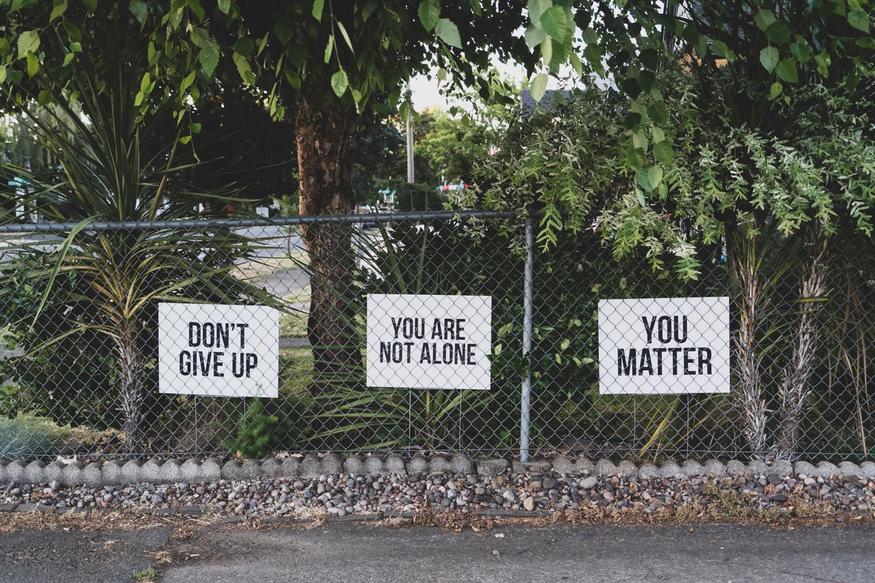What is the Difference between Mental Health and Mental Illness?
Published on 4/2/2020It’s become really common to mix up mental health and mental illness, and throw them interchangeably around. This can feel offensive to people who have had their lives altered by a mental illness, or make people struggling with their mental health feel unable to speak up as they don’t have a specific disorder.
We’re going to take a look at the difference between mental health and mental illness, and the complicated ways they can interact to mess up your day.

What is Mental Health?
Mental health refers to our wellbeing, our ability to handle everyday situations and life. It’s our moods, feeling low or angry consistently, how we deal with these emotions. Good mental health allows us to be resilient, to take on challenges and difficulties. This doesn’t mean we won’t have low days, or feel bad when something happens, it just means these are more often situational and we still cope through them.
Poor mental health can lead to both physical illnesses and mental illnesses. We can struggle with it for a period of our life, or have learned it through negative traits. We could have poor mental health during a bad relationship, working at a job we don’t enjoy, or during a difficult time. Emotional health is closely linked to mental health, and they influence each other heavily.
What is Mental Illness?
Mental illness refers to a variety of disorders that affect mood, thoughts and behaviour. One in five adults suffer from a mental illness during their lifetime.
The most common types of mental illness include:
- Depression
- Mood disorders (e.g. Bipolar)
- Personality disorders (e.g. Borderline Personality Disorder)
- Schizophrenia
- Anxiety
- Eating disorders
But there are plenty of others, and new ones being discovered annually. Symptoms range per disorder, but can include changes in sleep, appetite and energy level as well as mood fluctuations, social withdrawal, self-harm and difficulty performing everyday tasks.
It is vital to remember that a mental illness is not a choice, it is not a sign of a weaker person. It’s an illness, just like a physical one, and should be treated similarly with respect and perhaps medication or therapies.
How can Mental Illness and Mental Health Co-Exist?
1. Positive Mental Health + Positive Mental Illness
If only, right! Your positive mental health is shining on. This does not necessarily mean that you are always happy and always confident. No one is perfect, and no one needs to be. This simply means that you know yourself, you trust yourself. Good mental health is about living, and not being obstructed from it by yourself. You can cope when things are thrown at you, when obstacles happen. You cry and mourn the end of a relationship, but you move on and you don’t take that pain out on others or yourself. You may be feeling irrationally angry when driving and someone cuts you off, you swear a bit, then you move on, and it doesn’t affect your day. And positive mental illness means a lack of it, nothing to diagnose if you tried.
2. Positive Mental Health + Negative Mental Illness
This is quite a curious category, and probably the one people expect least! You can have negative mental illness, and hence be struggling from a mental disorder, and have positive mental health. This could mean you have OCD, Anxiety or another disorder, and you experience symptoms but you also tend to have them in control. You control your disorder, it doesn’t control you. You may maintain well with treatment, have satisfying relationships and a good life satisfaction. It can change, and at times your mental health could be worse, but this is your general trend.
3. Negative Mental Health + Negative Mental Illness
Oh no, this is a tough category to fall into! Negative mental health means that you struggle to cope, your resilience is low. You often feel extremely stressed, sad, angry or other negative emotions. You can’t cope with small obstacles. This has spiralled to or been influenced by your mental illness. This could be one or several of a variety of mental disorders, and your day to day life is difficult. This is not a pleasant state to be in, and one which would benefit extremely from speaking to someone and seeking certified help.
4. Negative Mental Health + Positive Mental Illness
I feel like this is the part where most of us get confused and mess things up. For you can have negative mental health, but not have a mental illness. This can commonly be situational. You’re grieving, and feel depressed for a period of time, uninterested in food or activities. But you do not have depression, it goes away and you feel better once your mental health improves again. An alternative situation is someone who hates their job, they’re continually stressed. They take it out on others, making their relationships unfulfilling and turbulent. They would benefit from speaking to someone, but they would not be diagnosed with a mental illness. They would leave their job or find happiness within it, and they’d improve their mental health once more. This stage is more like periods, on and off.

It can be difficult to differentiate between the two, given that mental illness can also be episodic and flare up at certain times. But the difference is that the mental illness never goes away, you’re never “cured”, it’s just under control for a while. Whereas mental health can fluctuate throughout your life, and be more easily managed. Bad mental health can lead to a mental illness, and positive mental health can allow you to manage your mental illness.
But poor mental health is also a struggle, and should be recognized as such. You’re not “better off” feeling depressed for a while than having depression, it’s still difficult and requires support and understanding from others. Having poor mental health is still an adjustment that you and your loved ones must work around. Just like we can have poor physical health sometimes, the same applies to our mind and shouldn’t be ignored.
Further Reading
Sherry Benton discusses examples of mental health and mental illness through past patients, and has a wonderful diagram that explains the correlation between the two.
The signs and symptoms of mental health and mental illness can help in understanding the difference, as discussed by Magellan Health Insights.
“Health isn’t like an on/off switch. There are different degrees of health.” - Find out why the same applies to mental health.

Featured posts

Fleur
Welcome to Symptoms of Living! A place where I like to relieve myself of the barrage of thoughts and ideas filling my mind. Here I'll take a look at various topics, from books to BPD, series to self-harm, there's nothing that we can't, and shouldn't, talk about.
Having struggled with mental illness since the age of 15, one of the hardest parts was how alone I felt in it. While mental illness is beginning to be discussed more openly, and featured in the media, I still think there is room for improvement. So whether it is mental illness or merely mental health, a bad day or a bad year, let's make this a place to approach it and strip it back. Everyone has their own symptoms of living, and you certainly won't be the only one with it.
Would you like to receive my top monthly articles right to your inbox?
For any comments/questions/enquiries, please get in touch at:
info@byfleurine.com
I'd love to hear from you!